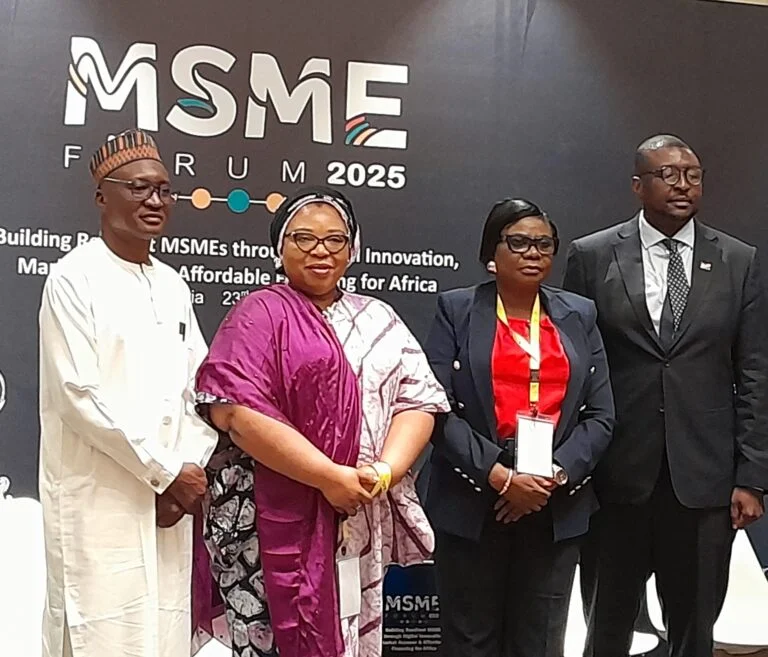The Nigerian Association of Small and Medium Enterprises (NASME) has called on the federal government to establish permanent, revolving intervention funds to support long-term access to finance for micro, small, and medium-sized enterprises (MSMEs) nationwide.
Speaking during a panel session at the 2025 MSME Forum in Abuja, NASME President Abdulrashid Yerima emphasized that short-term or one-off financial interventions are insufficient to address the structural funding constraints MSMEs face, especially in Nigeria’s challenging economic climate.
Yerima acknowledged that past government support, particularly through institutions such as the Bank of Industry (BOI), has made a positive impact. However, he stressed the need to expand and institutionalize such initiatives as part of a broader strategic framework.
He proposed the development of a national MSME financing blueprint aligned with Nigeria’s industrial policy, trade objectives, and youth employment agenda. Yerima also advocated for blended financing models, which would combine donor funding and public capital to de-risk and attract private sector investment into the MSME ecosystem.
Highlighting recent developments, Yerima welcomed the establishment of a national Credit Guarantee Company, describing it as timely and vital for businesses often deemed too risky by conventional lenders. “The scheme could be a game-changer for MSMEs. With appropriate backing, these businesses have the capacity to grow, repay loans, and make the funds self-sustaining,” he said.
He further urged financial institutions such as BOI and the new Credit Corporation (Credicorp) to simplify loan application procedures and support MSMEs in becoming investment-ready. Targeted financial support, Yerima suggested, should prioritize key sectors including agriculture, manufacturing, logistics, and services, noting the interdependence of these industries in fostering economic resilience.
To enhance affordability, he recommended subsidizing MSME lending schemes with interest rates capped at 3% and investing in business training to strengthen loan repayment performance and sustainability.
On regional trade, Yerima proposed the introduction of cross-border financial instruments to support MSMEs looking to expand their operations under the African Continental Free Trade Area (AfCFTA).
Credicorp’s Executive Director of Operations, Nike Kolawale, echoed the importance of aligning national and subnational efforts to strengthen MSME outreach and engagement. Kolawale revealed that Credicorp is currently building a comprehensive credit rating and verification system tailored to small businesses to enhance credit transparency and reduce default risk.
Also contributing to the panel, Peter Shivute, Executive Director for MSME Development and Export Promotion at the Namibia Investment and Development Board, called for deeper regional cooperation. He pointed to historic ties between Nigeria and Namibia as a foundation for greater economic collaboration across the continent.
Bank of Industry’s Divisional Head for North-Central, Ogo Akabogu, reaffirmed the institution’s commitment to MSME development. She disclosed that BOI is actively working to accelerate its loan processing timelines to better serve entrepreneurs and streamline access to financing.

